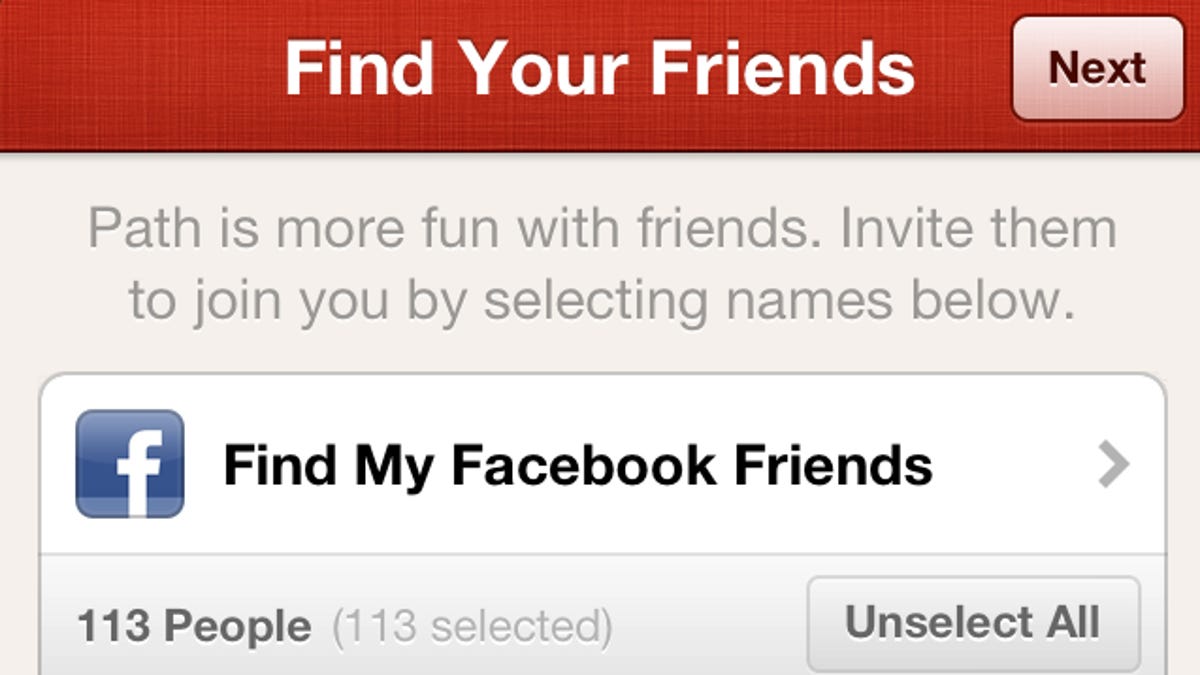Despite complaints of spamming, Path stands by its app's invitation process
A default setting in the app's signup routine causes issues for some users and poses a new problem for the startup, which is developing a reputation for being reckless with personal information.

Private social network Path is on the defensive Tuesday following allegations of address-book misuse when attempting to recruit the friends and family members of new users over to its applications.
The 2-year-old company is being accused of spamming members' contacts with text messages and calls. The tale, as told by disgruntled ex-Path user Stephen Kenwright, goes that Path slyly pinged all of Kenwright's contacts, without his knowledge, even after he uninstalled the app. (In some instances, when the listed phone number for a contact was a landline, the text message was converted by the phone to a call, with the message being automatically read aloud, Kenwright said.)
The matter at hand now is not the scandal it would seem to be, though it does highlight the potential backlash overeager app makers face when they attempt to force their products to go viral.
Kenwright was simply the unknowing victim of Path's on-boarding experience for new users, introduced with the version 3.0 update, which encourages members to invite all their friends to Path. It's a pushy recruiting tactic employed by many other applications.
After download, new members are walked through a setup process that includes a default option for messaging all phone contacts. In Kenwright's case, he likely clicked "Next" too soon and failed to realize that by not choosing to "unselect all," he had given Path permission to message his friends.
"Users are giving us permission to send invitations to friends and family," Nate Johnson, vice president of marketing for Path, told CNET in defense of his company's practices. "Path is best with friends. We want to help users connect with close friends and family as quickly as possible."
The company, he added, has heard from users that they want to find their friends on Path. "This is the No. 1 piece of feedback we get from users," he said. "That's why we have this in the new-user flow."
Though not guilty of any foul play, the company will need to assess whether its aggressive on-boarding practice is the right way to build up its member base. Path, now a Top 10 free app in Apple's App Store, has experienced a remarkable growth spurt in recent weeks, and has marched past 10 million registered users. But at what cost to those users?
"I spammed my entire contact list when I clicked too fast during the Path signup process," CNET Senior Editor Bridget Carey said, relating to Kenwright's experience. "It was my fault for going too fast, but... it's mortifying."

